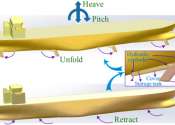Integrating battery storage into electrical grids can sometimes increase emissions due to market forces
An electricity market analysis found adding battery storage to enhance grid reliability caused power generation markets to favor coal over natural gas.
Apr 11, 2024
0
2









